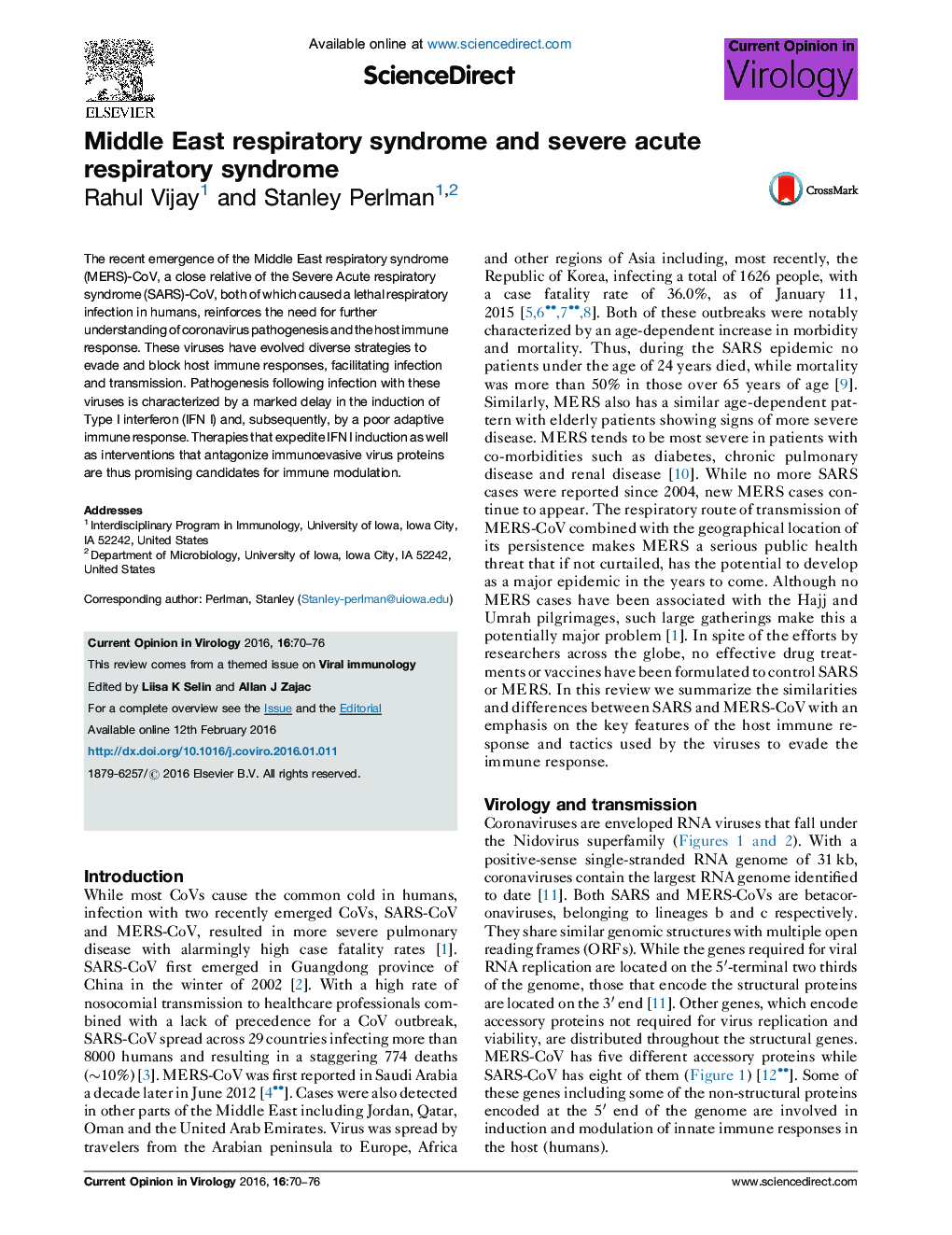| Article ID | Journal | Published Year | Pages | File Type |
|---|---|---|---|---|
| 5806666 | Current Opinion in Virology | 2016 | 7 Pages |
â¢MERS-CoV is a newly emerging betacoronavirus causing lethal human respiratory infection.â¢MERS-CoV is transmitted from camels in the Arabian peninsula.â¢Susceptibility to MERS-CoV infection is greatest in individuals with underlying morbidities.â¢No vaccines or anti-viral therapies are available for prophylaxis or treatment.â¢MERS-CoV and SARS-CoV have evolved effective immune evasion strategies.
The recent emergence of the Middle East respiratory syndrome (MERS)-CoV, a close relative of the Severe Acute respiratory syndrome (SARS)-CoV, both of which caused a lethal respiratory infection in humans, reinforces the need for further understanding of coronavirus pathogenesis and the host immune response. These viruses have evolved diverse strategies to evade and block host immune responses, facilitating infection and transmission. Pathogenesis following infection with these viruses is characterized by a marked delay in the induction of Type I interferon (IFN I) and, subsequently, by a poor adaptive immune response. Therapies that expedite IFN I induction as well as interventions that antagonize immunoevasive virus proteins are thus promising candidates for immune modulation.
